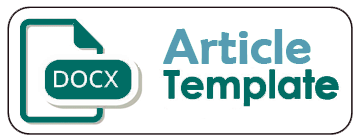Optimizing Indonesian Language Learning for Civil Engineering Student in Semarang State Polytechnic
DOI:
https://doi.org/10.32497/jolali.v3i1.5782Abstract
The main aim of learning Indonesian at state polytechnic is to provide scientific transformation and productively improve Indonesian language skills consisting of speaking skills and writing skills for academic purposes. The purpose of writing this article is to present the results of identification and scientific research regarding the optimization of project-based learning for General Indonesian Language Subjects in the Civil Engineering Department of the Semarang State Polytechnic. The method used in this article is an exploratory study with a qualitative descriptive approach. The data presented in this scientific article comes from various empirical experiences obtained by the author while working in the world of education and teaching at the Semarang State Polytechnic and a comprehensive literature study. The results of this research are (1) learning Indonesian within the Semarang State Polytechnic is an inseparable part of comprehensive lecture activities; (2) optimization of Indonesian language learning at state polytechnics needs to be carried out seriously and consistently; (3) learning Indonesian is able to increase the productive competence of students of the Civil Engineering Department in speaking Indonesian in the context of speaking skills and writing skills for academic purposes
References
Amelia, A., & Solikhah, M. (2024). Meningkatkan Kreativitas Menulis Siswa Melalui Penerapan Teknologi. Jurnal Pendidikan Indonesia, 5(1), 1”“8. https://doi.org/10.59141/japendi.v5i1.2663
Budiantoro, T. (2019). Meningkatkan Hasil Belajar Mata Kuliah Bahasa Indonesia melalui Model Pembelajaran Project Based Learning. Jurnal Humaniora Teknologi, 5(1), 41”“46. https://doi.org/10.34128/jht.v5i1.50
Desmirasari, R., & Oktavia, Y. (2022). Pentingnya Bahasa Indonesia Di Perguruan Tinggi. ALINEA : Jurnal Bahasa, Sastra Dan Pengajarannya, 2(1), 114”“119. https://doi.org/10.58218/alinea.v2i1.172
Mailida. (2023). Karakteristik Mata Pelajaran Bahasa Indonesia. Journal of Social Science Research, 3, 1”“2.
Marzuki, A. G., & Kuliahana, A. (2021). Using Language Games to Enhance EFL Students”™ Speaking Skill in Indonesia. Al-Ta Lim Journal, 28(3), 213”“222. https://doi.org/10.15548/jt.v28i3.700
Moleong, L. J. (2017). Metode Penelitian Kualitatif. Bandung: Remaja Rosdakarya.
Isgandhi. (2015). Pembelajaran Bahasa Indonesia Kreatif Sebagai Mata Kuliah Pengembangan Kepribadian pada Pendidikan Vokasi (Politeknik). Ragam Jurnal Pengembangan Humaniora, 15(3).
Puspitasari, A. (2017). Menumbuhkan Bahasa Indonesia Yang Baik Dan Benar Dalam Pendidikan Dan Pengajaran. Tamaddun, 16(2), 81”“87. https://doi.org/10.33096/tamaddun.v16i2.55.
Putri, F. N. (2020). Pendidikan Karakter Siswa Melalui Pelajaran Bahasa Indonesia. Jurnal Pendidikan Bahasa Indonesia, 8(1), 16. https://doi.org/10.30659/j.8.1.16-24
Purnamasari, & Wijoyo, H. (2023). Analisis Efektifitas Pembelajaran Bahasa Indonesia Di Perguruan Tinggi Era 5.0. Jotika Journal in Education, 2(2), 50”“56. https://doi.org/10.56445/jje.v2i2.82
Suastra, I. M., & Menggo, S. (2020). Empowering students”™ writing through performance assessment. International Journal of Language Education, 4(3), 432”“441. https://doi.org/10.26858/ijole.v4i3.15060
Yulianti, S., Nuraeni, S., & Parmawati, A. (2019). Improving Students”™ Writing Skill Using Brainswriting Strategy. PROJECT (Professional Journal of English Education), 2(5), 714. https://doi.org/10.22460/project.v2i5.p714-721
Downloads
Published
Issue
Section
License
Authors who publish with this journal agree to the following terms:- Authors retain copyright and grant the journal right of first publication with the work simultaneously licensed under a Creative Commons Attribution License that allows others to share the work with an acknowledgement of the work's authorship and initial publication in this journal.
- Authors are able to enter into separate, additional contractual arrangements for the non-exclusive distribution of the journal's published version of the work (e.g., post it to an institutional repository or publish it in a book), with an acknowledgement of its initial publication in this journal.
- Authors are permitted and encouraged to post their work online (e.g., in institutional repositories or on their website) prior to and during the submission process, as it can lead to productive exchanges, as well as earlier and greater citation of published work (See The Effect of Open Access).





